Emergency Dentist Wakefield
Ease Your Pain, Prevent Future Oral Health Problems

At Schumacher Dental, we understand that no emergency is convenient. That’s why we promise to be there for you in your most stressful dental moments. If you’re in the middle of an emergency, please call our dental office to request an appointment. As an emergency dentist in Wakefield, we do our best to see the most urgent cases the same day we’re contacted. We also provide suggestions for managing your emergency until we can see you.
Why Choose Schumacher Dental for Emergency Dental Care?
- Same-Day Emergency Appointments Available
- Get Scheduled in the Evening and On Weekends
- Walk-Ins Welcome
How We Treat Dental Emergencies

- Get a same-day appointment: We understand that dental emergencies can be stressful to deal with, which is why we offer first-aid guidance when you call our office. The sooner we can get you scheduled, the better, which is why we’ll do our best to get you seen the same day you call.
- Emergency exam: After you arrive, Dr. Schumacher will perform an emergency exam and determine if X-rays are necessary to confirm the extent, location, and severity of your dental emergency. We also don’t want our patients to have to suffer through oral pain, so we do our best to act efficiently and effectively to treat your immediate discomfort.
- Review findings: When Dr. Schumacher is finished with your exam, he’ll go over his findings with you, then recommend the best treatment to address your symptoms. This plan is customized to your specific needs and will include estimated costs and an expected timeline. That way, you can make an informed decision on how you’d like to proceed.
- Get the care you need: While we may recommend another service if needed to address your symptoms, the most common treatments we suggest to treat dental emergencies include dental fillings, crowns, root canal therapy, and tooth extractions.
The Most Common Dental Emergencies
Even if you aren’t sure if you’re experiencing a dental emergency, it’s best to give us a call so we can perform a more detailed exam and prevent your problem from getting worse. Of course, you can start managing your symptoms ahead of your future visit. If you have a dental dilemma on your hands, here are some tips to care for your mouth while you’re making your way to our office.
Understanding the Cost of Emergency Dentistry

No one ever expects a dental emergency to happen to them, but it’s a common situation. Don’t delay getting the care you need because you’re worried about a large bill. There’s not a flat fee for emergency services because every problem differs. Don’t worry, we strive to keep the cost of emergency dentistry in Wakefield affordable for all budgets.
Every Dental Emergency Is Different

Dental emergencies come in many forms, which means every patient’s needs are unique. We won’t use a cookie-cutter treatment plan to save your smile. Instead, your emergency dentist in Wakefield, Dr. Schumacher, will examine your mouth to create a personalized strategy to rehabilitate your smile. Although all patients’ circumstances differ, common treatments include:
- Tooth extraction
- Dental crown
- Root canal therapy
- TMJ therapy
- And more!
Dr. Schumacher will explain your options and their costs. You’ll know exactly what you’ll need to pay, so you won’t be surprised by any fees.
Does Dental Insurance Cover Dental Emergencies?
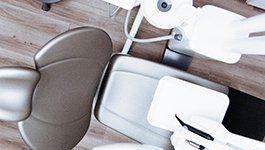
Most traditional dental insurance plans offer coverage for an emergency visit. Although your benefits may not pay the entire cost, you can use your annual allowance to offset certain steps in your treatment plan, like the consultation, imaging, or restorations. A member of our team will work on your behalf to maximize your dental benefits to lower the amount you’ll have to pay out-of-pocket.
Other Options for Making Dental Emergencies Affordable
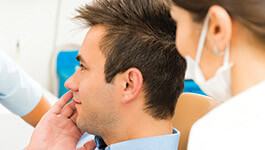
Besides using your dental insurance, we offer many solutions to provide cost-effective services, so nothing stands in your way of repairing your smile, including:
- Traditional Payments: We accept all traditional payment methods, including cash, checks, and credit cards.
- Third-Party Financing: You can make monthly installments to pay for your treatment using third-party financing.
We will discuss everything during your consultation to help you make the best decision for your smile and bank account.
Taking Care of Your Smile Can Save You Money
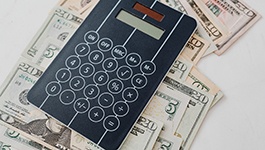
You can’t always stop a dental emergency from occurring, but you can take several steps to reduce the likeliness of one. Many people end up in a dental chair from an untreated issue that has been brewing in their mouth, like a cavity. You can ensure there aren’t any concerns lingering in your mouth by visiting your dentist at least twice a year for a cleaning and checkup. Every $1 spent on preventive dentistry can save up to $50 on emergency and restorative fees to invest in a healthy smile.
Dental emergencies can also occur without any warning or underlying problem, like from a fall or injury to the mouth. If you play sports, you have a heightened risk of a dental emergency if there’s trauma to your mouth. You can safeguard your smile with an athletic mouthguard. It provides your teeth, gums, jaw, and other oral structures with a layer of protection. Research shows it can also lessen your risk of concussion.
Don’t place your smile at risk of irreversible damage because you’re concerned about a bill. Contact our office today to restore your smile for affordable rates.
Keys to Preventing Dental Emergencies

It’s impossible to completely avoid experiencing a dental emergency, but there are certain preventive measures that you can take to reduce your risk. Instead of dealing with a surprise visit to your emergency dentist in Wakefield, Dr. Schumacher, you’ll want to take note of the following steps below to prevent a dental emergency from occurring. Doing so will not only help you avoid unnecessary stress and discomfort, but money on future dental treatments.
Visit Your Dentist Every Six Months
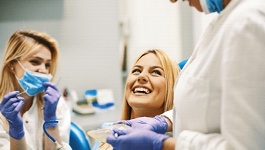
By visiting our office every six months for a comprehensive dental checkup, you can receive a detailed cleaning of your teeth and remove any harmful plaque and tartar that could trigger a dental emergency in the long-term. Our office can also confirm that no underlying problems are present, including tooth decay and gum disease, both of which can be easily missed until they’ve already started causing problems.
Keep Up With Good Oral Hygiene At Home

Keep up with your at-home hygiene routine to prevent buildup of plaque and the development of tartar, a calcified form of plaque that can only be removed in a dental office. Brushing should be performed twice a day with fluoridated toothpaste, which is designed to fight cavity-causing bacteria. Flossing should be completed once a day to remove food debris and plaque from the sides of teeth. An oral rinse can make your oral hygiene even more comprehensive but should not be used to replace brushing or flossing entirely.
Stick to a Healthy and Balanced Diet

The foods you eat can also have an impact on your risk for experiencing dental emergencies. Eating a healthy balanced diet is essential to ensuring your teeth and gums are getting the vitamins and nutrients they need to stay healthy. Furthermore, you should go out of your way to avoid very hard or chewy foods that can cause teeth to chip or crack, including hard candies. Cut back on sugars and starches in your diet when possible as well as these ingredients are what oral bacteria love to consume most.
Wear a Mouthguard When Playing Sports

Wearing a protective mouthguard can have a major impact when playing any contact sports or participating in activities that could cause dental damage. This includes sports like football, baseball, basketball, and hockey. If you enjoy wrestling, boxing, or practice karate as well, you should be wearing protective gear to prevent accidentally chipping or cracking your tooth. Those who have a teeth grinding habit while sleeping can benefit from wearing a nightguard. This can reduce the risk of eroding, chipping, or cracking teeth as a result of unconscious teeth grinding or clenching.
Use Tools to Perform Tasks, Not Teeth
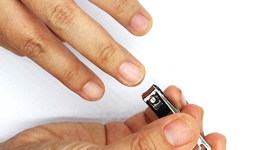
Don’t use your teeth to open packages or bottles. Instead, use the right tool for the job to prevent accidental damage. Avoid chewing on inedible items like ice cubes, pens, pencils, and fingernails as these can also damage teeth and restorations quite easily. Find a healthier way to channel stress that doesn’t include these habits, such as going for a walk, drinking water, chewing gum, or using a stress ball.
Dental Emergency FAQ’s

A little knowledge ahead of time can go a long way when an emergency strikes. While you can’t always tell when you’ll be faced with an urgent dental problem, it never hurts to learn more about how to make them less likely to happen in the future. To help you in this regard, we’ve answered a few of our most frequently asked questions about emergency dentistry in the section below.
Should I visit the emergency room for a dental emergency?
In most cases, the doctors at the emergency room won’t be able to replant a dislodged tooth or heal broken teeth. They can prescribe antibiotics or pain medication for toothaches, but they won’t be able to address the root of the problem. Only a dentist can provide you with the comprehensive dental care you need.
However, there are certain issues that require immediate medical attention. These include a fractured or dislocated jaw, profuse bleeding, a deep facial cut, and difficulty breathing or swallowing. For these problems, head to the emergency room first. Call us after you’re released to find out whether you need further dental treatment.
How can I be prepared for a future dental emergency?
Creating a dental emergency kit ahead of time can help ease your pain between the time the emergency occurs and the time you reach our office. It’s a good idea to keep one of these kits in places like your car, your bathroom, or even your desk at work. Be sure to include the following items:
- A piece of paper with our contact information
- Latex-free gloves
- Bottle of ibuprofen or acetaminophen
- Orajel
- Small container with a secure lid
- Saline rinse solution
- Individually wrapped gauze pads
My child knocked out a baby tooth. Do they need emergency dental treatment?
If your child lost a baby tooth because of an injury, try to remain calm. There’s no need to panic, but you should bring them to our office as soon as you can. Depending on your child’s age and the location of that tooth in their mouth, we may need to perform X-rays to make sure the underlying permanent tooth wasn’t damaged. With older children, it may not be a problem, but with younger children, we might need to put a space maintainer in that gap to prevent their surrounding teeth from drifting and impacting the growth of the adult tooth.
More to Explore
Preventive Dentistry Restorative Dentistry Cosmetic Dentistry Dental Implants Emergency Dentistry See Our Services
